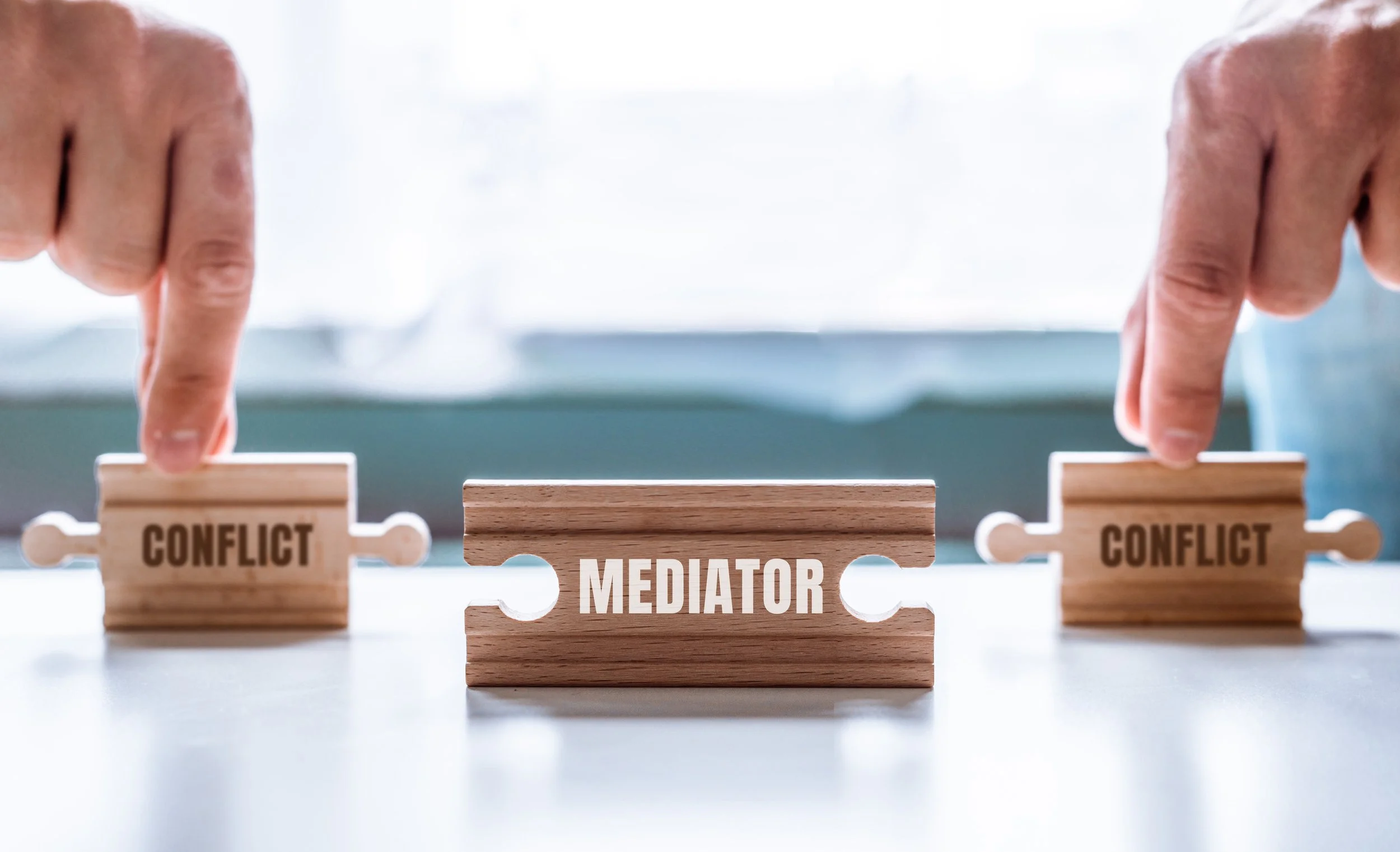
What is Mediation?
Family Mediation is a voluntary alternative to the Family Court Process that allows parents agree to the terms of a parenting plan, support arrangement and property division in a way that is satisfactory to both parties. Since it is the parties themselves that form that plan, they are much more likely to follow through than if it was decided for them by a judge or other authority.
-

Neutral Third Party
Your mediator is a neutral third party in your dispute. Your mediator will be working for both parties to:
Act as a facilitator for the discussion
Help clarify the what needs to be resolved
Provide relevant information around the issues being discussed
Generate new options that may form part of your solutions
Step in as a referee if needed to ensure the discussion stays on topic
Write what you have agreed to in mediation in a report that is as easy to possible to legalize
-

Confidential
The parties will agree before mediation begins to keep what is discussed confidential. Parties will sign a contract agreeing the mediator will not be later called as a witness in family court and their notes wil not be subpoenaed.
This allows both parties to be open, honest and transparent about their wants and needs without having to worry about it being used against them later. Parties can brainstorm potential options that may become part of the plan moving forward, but only if both parties agree.
Typically, the only exceptions to confidentiality are if there was any threat of physical harm to another person, or any risk of harm to a child. In these cases, your mediator would have a duty to report these concerns to an appropriate authority.
-

Voluntary
Every step of Family Mediation is completely voluntary. Both parties have to agree to participate and either can choose the end the process at any point with no consequence or penalty if they feel it is not working to resolve the issues at hand.
This is important as a mediation can only be successful if each party is attending in good faith, with an intention to work together to form a plan that is satisfactory to both. If one party felt pressured or intimidated into mediation, or during the mediation, they may agree to something they do not actually think is fair. This can lead to larger problems later on if the parties are not able to follow the plan formed in mediation.
The voluntary nature of mediation allows both parties to participate only if they are comfortable and empowered to negotiate on their own behalf on equal footing.
The Mediation Process
Once both parties consent to Family Mediation your mediator will contact each party to schedule their intake. More info on each stage can be found —>
-
The mediator will have a 1-on-1 intake with each party first to get their perspective on the situation and go through a screening process to ensure mediation is safe and appropriate. These appointments are typically 1 hour.
-
Parties will meet to negotiate the issues with the mediator guiding the discussion. The mediator will decide how to format this session to ensure everyone participating will be able to do so safely and comfortably. Parties may be together in a online meeting, in person at the mediator’s office or the mediator will meet with each party separately and carry messages back-and-forth (called Shuttle Mediation).
There may be one joint session, or many, depending on the complexity of the issues being discussed and how far apart parties are in their positions.
-
Following the joint session(s), the mediator will write what the parties agreed to, and only what they have agreed to in a mediation report. This report is signed only by the mediator, and is not in itself legally binding, but is written in a legal language to make redrafting their agreement into a legal format as easy as possible.
It is advised that parties have a Family Law Lawyer assist with the final step.
Any Other Questions
Please contact us using the form —>



